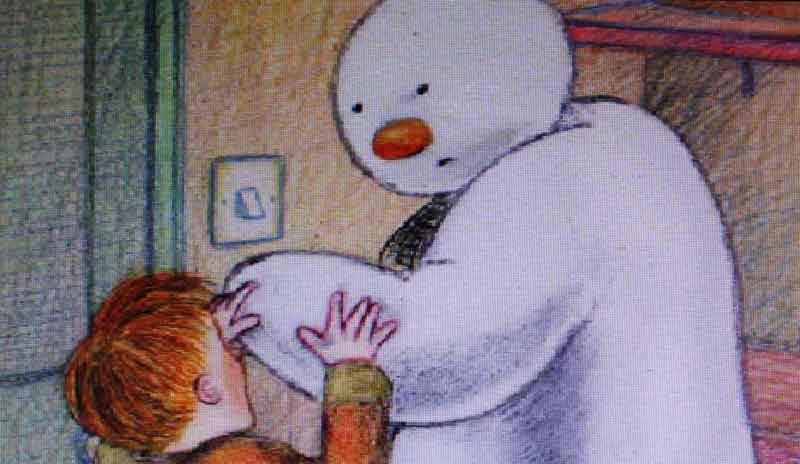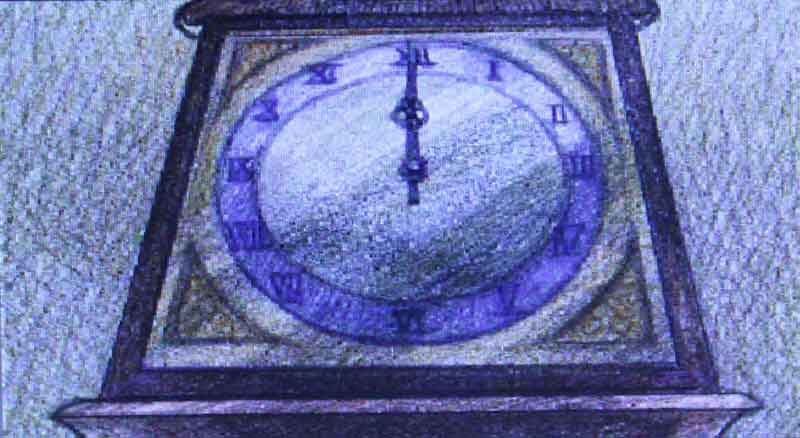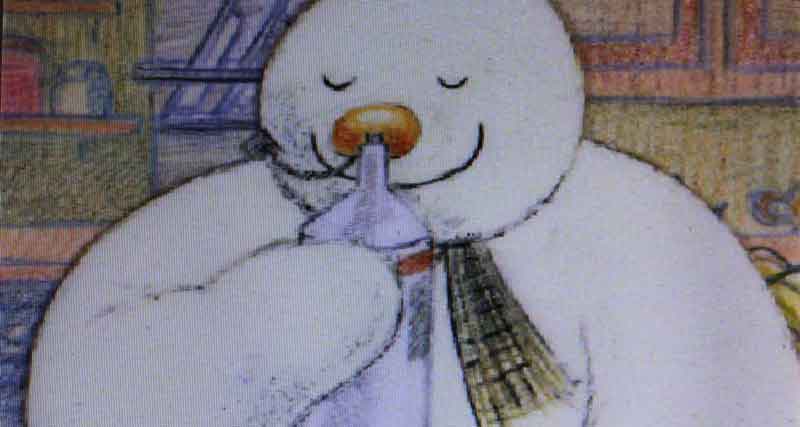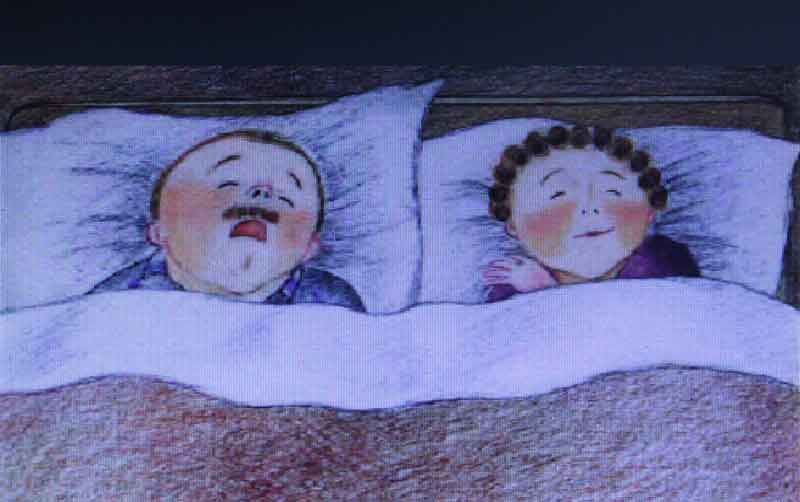Sleep
Almost everyone agrees that a good night’s sleep contributes to good health. And, though we spend more than a third of our lives in (or trying) to sleep, getting the kind of rest that helps us awaken refreshed and ready to “seize the day” can be problematic.
 While we’re all still looking for that magic switch that induces instant slumber (with sweet dreams) for the seven to nine hours recommended nightly for adults, at Fresh Start, we help you establish habits that help you sleep better while with us and, more importantly, sleep better when you return home.
While we’re all still looking for that magic switch that induces instant slumber (with sweet dreams) for the seven to nine hours recommended nightly for adults, at Fresh Start, we help you establish habits that help you sleep better while with us and, more importantly, sleep better when you return home.
Core Concepts and Timely Lessons
It all begins with Fresh Start’s Core Program, which combines wholesome foods and healing drinks with yoga, fitness classes and various treatments, like hydrotherapy, to detox your system and take your body to the point where it’s functioning as effectively as possible. Emotional wellbeing is supported through guided meditations, workshops, excursions and other activities.
 Life has a rhythm and a structure in the brain, the circadian clock, helps us to prepare for the ebb and flow of light from dawn to dusk and activity to rest. Digestion is just one bodily system that relies on our “inner timekeeper” and at Fresh Start the day begins with a beverage to hydrate the cells and a late breakfast at 9:00 a.m. At lunch, the main meal of the day, food is taken when digestion is best begun, at 1 p.m., while a re-mineralizing soup is the usual dinner fare.
Life has a rhythm and a structure in the brain, the circadian clock, helps us to prepare for the ebb and flow of light from dawn to dusk and activity to rest. Digestion is just one bodily system that relies on our “inner timekeeper” and at Fresh Start the day begins with a beverage to hydrate the cells and a late breakfast at 9:00 a.m. At lunch, the main meal of the day, food is taken when digestion is best begun, at 1 p.m., while a re-mineralizing soup is the usual dinner fare.
How does this all help you sleep? Very well, because the digestive system is free to do what it should at night by absorbing and assimilating nutrition from food from approximately 8 p.m. to 4 a.m. and the elimination of waste from 4 a.m. until noon.
Science has also discovered that the circadian clock differs from person to person, so if you feel you’re a “night owl”, you just might be right. Dealing with this condition can be challenge but having a body that’s cleansed and exercised can only help.
The ravell’d sleeve of care*
Almost all of us have lost sleep to an uneasy mind or spirit. Shakespeare’s sleep that “knits up the ravell’d sleeve of care” can’t be had and the “balm of hurt minds” seems beyond our grasp.
Fresh Start’s educational classes in the areas of healthy lifestyle choices and sessions on emotional well-being, including guided meditations, can help you find proactive ways of dealing with temporary upsets and issues which may interfere with sleep.
Two emotional wellness coaches, an art therapist, a Kripalu Yoga Instructor and a Certified Holistic Health Practitioner are on staff to help you find ways to smooth your nights and days as part of our wellness team of health professionals.
A deeper look at sleep
 Sleep has two different phases, one where we’re completely unaware of ourselves and our surroundings (sometimes known as deep sleep) and dreaming, where, as only our minds, we experience all kinds of fantastic adventures, or at least when viewed from our waking state’s more sober perspective. Both kinds of sleep contribute to our health as our body’s immune, nervous, skeletal, and muscular systems are rebuilt and restored during this time.
Sleep has two different phases, one where we’re completely unaware of ourselves and our surroundings (sometimes known as deep sleep) and dreaming, where, as only our minds, we experience all kinds of fantastic adventures, or at least when viewed from our waking state’s more sober perspective. Both kinds of sleep contribute to our health as our body’s immune, nervous, skeletal, and muscular systems are rebuilt and restored during this time.
Deep sleep begins a series of 4-6 sleep cycles of 90 minutes each per night, and has three phases N1, N2 and N3. In the last phase, the brain uses the least amount of energy and human growth hormone is secreted, so it’s vital to your health you reach that sleep level.
Such stuff as dreams are made on**
Dream sleep is accompanied by rapid eye movement and labelled REM sleep to differentiate it from deep sleep. The 90-minute cycles that begin sleep have more deep sleep time than the later cycles which have more REM sleep.
The role dreams play in life and the contribution they make to wellbeing, are an area of study for many and at least two branches of psychology. At Fresh Start, we primarily concentrate on healing gained through physical and waking state pathways.
Sleep pathologies
The ongoing disruption of sleep can have negative effects on physical and mental health. Two common sleep disorders are insomnia and sleep apnea (apnoea). If one of your main reasons for coming to us at Fresh Start is fatigue that may come from these conditions, please make sure you fully discuss this with us as we review your application.
Insomnia
The inability to sleep well on an ongoing basis, insomnia, affects 10% to30% of adults, is more prevalent among women, and increases as age exceeds 60 years. There are a wide range of conditions that can contribute to insomnia and the condition can be exacerbated through the use of caffeine, nicotine or alcohol. Drugs used to induce sleep, commonly called sleeping pills, are not recommended for use for periods of more than four to five weeks, as prolonged use can lead to accidents, dementia or addiction.
 In no particular order, here are a few tips for helping get a good night’s sleep: lower the temperature in your bedroom; try wearing socks; turn your phone, and any other devices, so you can’t see the screen. If you do wake up, be prepared to: smell something with lavender or blow some bubbles, which helps change your breathing.
In no particular order, here are a few tips for helping get a good night’s sleep: lower the temperature in your bedroom; try wearing socks; turn your phone, and any other devices, so you can’t see the screen. If you do wake up, be prepared to: smell something with lavender or blow some bubbles, which helps change your breathing.
Sleep Apnea
 Sleep apnea is a condition where, during sleep, breathing stops or becomes very shallow. Not only does the condition leave those who have this condition fatigued during the day, it also interferes with the restorative properties normal sleep provides. In obstructive sleep apnea (the most common form), soft tissues of the palate collapse and block breathing entirely. The autonomous nervous system senses increased carbon dioxide in the blood and kick starts breathing again inducing, in many cases, loud snoring as the body responds to blocked air passages.
Sleep apnea is a condition where, during sleep, breathing stops or becomes very shallow. Not only does the condition leave those who have this condition fatigued during the day, it also interferes with the restorative properties normal sleep provides. In obstructive sleep apnea (the most common form), soft tissues of the palate collapse and block breathing entirely. The autonomous nervous system senses increased carbon dioxide in the blood and kick starts breathing again inducing, in many cases, loud snoring as the body responds to blocked air passages.
Alcohol, sedatives and tranquilizers can contribute to sleep apnea by relaxing throat muscles and smokers are three times as likely to have the condition compared to someone who has never smoked. One more reason to quit smoking!
Five factors associated with sleep apnea include: snoring, a history of stroke or transient ischemic attack, a neck circumference greater than 40 cm (15.7 inches), high blood pressure and obesity.
Many people with sleep apnea are unaware they have it or are misdiagnosed. If you are sleepy during the day, snore loudly, have vision problems, are irritable or depressed, or have difficulty concentrating, you may have this condition and it might be good to discuss your concerns with your doctor.
But take heart, tests are now available to determine if you have the condition and treatment in the form of a continuous positive airway pressure (CPAP) machine, which opens restrictions in your air passage, and other treatment modalities are available.
A deeper look at good health
Wholistic health that encompasses body, mind and spirit and delivers lasting peace is a treasure beyond any other. At Fresh Start, we’re committed to helping you find and gain that health and offer many services in that regard.
Specialty Packages addressing physical health, habits, emotional wellbeing and relaxation can be added to your Core Program. Our Go Deeper Path combines One-on-One support with our Custom Healing Protocols that target rebalancing, rebuilding and cleansing specific organs. The Relaxation Path builds on the Core Program using massage, body wraps and more for an accumulating effect that both relaxes and energizes.
There are so many ways we can help but it begins with you and your individual needs. That’s why we recommend an initial call, email or online chat to see how we can assist. Don’t delay. There’s no obligation of course.
*Shakespeare’s Macbeth, Act 2, Scene 2, Line 34
**Shakespeare’s The Tempest, Act4, Scene 1, Line 157.

